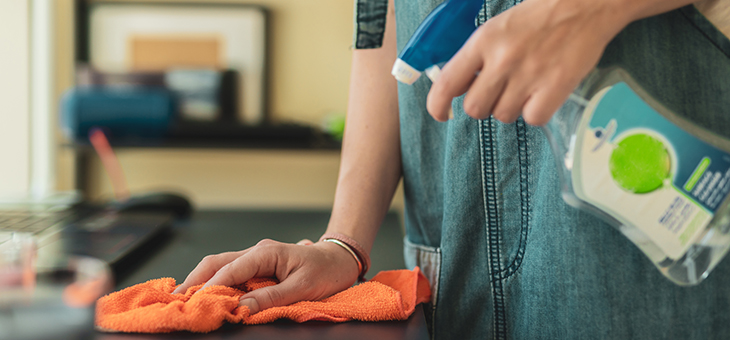Individual fears of contracting the coronavirus range from ‘we’re all gonna die’ to ‘I basically have to French kiss an infected person to get it’.
Regardless of people’s fear of becoming infected, very little is known about how the virus can pass from one person to another or how long germs could live on surfaces.
By reviewing similar viruses, researchers now believe they’re able to provide some answers.
A study published in the Journal of Hospital Infections showed how long severe acute respiratory syndrome (SARS) and Middle East respiratory syndrome (MERS) – both of which contain coronavirus pathogens – survived on hard surfaces for up to nine days.
The standard lifespan of these germs is four to five days; however, they can live longer in low-temperature, humid environments.
The virus, which had been referred to as ‘Wuhan Virus’, has now been officially identified by the World Health Organization (WHO) as ‘COVID-19’.
Calling the virus ‘Wuhan Virus’ was problematic, as evidenced in the past when ‘Swine Flu’ led the Egyptian government to order the slaughter of hundreds of thousands of pigs.
According to the WHO guidelines for naming infectious diseases, in order to avoid negative repercussions from stigmatising a geographic area or a population group, names that refer to specific places, people and professions are discouraged.
It may be too late for many Asian people or people of Asian descent. According to a New Daily report, “everyday Australians of Chinese ancestry are facing abhorrent racism” and some Asian businesses have so few customers they’re being forced to cut back on staff and shut up shop at peak hours.
The report states: “It appears many people want to steer clear of areas heavily populated by Chinese people for fear of the coronavirus spreading”.
It doesn’t help when largely unsubstantiated stories circulate. There’s one in which a family contracts coronavirus while sharing a bowl of soup and another about a British businessman dubbed the ‘super spreader’, who has allegedly infected 11 people through touch alone. Other stories claim you can catch the virus from fortune cookies or that the virus is a biological weapon borne in ‘bat soup’.
Scientists are still trying to figure out exactly how the virus spreads. Currently, the Centers for Disease Control (CDC) says it’s most likely passed on by droplets from coughing and sneezing.
Still, there’s still a lot of myth and misinformation about the virus going around.
An article in The Conversation states that “The spread of misinformation about the novel coronavirus seems greater than the spread of the infection itself.
“Public health officials expect misinformation about disease outbreaks where people are frightened. This is particularly so when a disease is novel and the science behind it is not yet clear. It’s also the case when we still don’t know how many people are likely to become sick, have a life-threatening illness or die.”
And, as Junkee journalist Rachael Conaghan puts it: “If we know one thing about the internet era, it’s that fake news spreads faster than any virus ever could.”
So, wash your hands regularly, keep some sanitiser handy, don’t put your fingers in your mouth or nose after touching public surfaces, stay at home if you’re sick and cover your nose with your elbow or a tissue if you do sneeze.
Disinfecting hard surfaces, which coronavirus might be living on, is also important. Solutions containing ethanol, hydrogen peroxide, or sodium hypochlorite (bleach) are effective against coronaviruses.
It’s highly unlikely that you’ll catch coronavirus, but that shouldn’t prevent you from doing your best to prevent spreading other more common illnesses – or misinformation about those you don’t understand.
What’s the worst rumour you’ve heard about coronavirus? Are you worried about it? Has it affected your life in any way?
If you enjoy our content, don’t keep it to yourself. Share our free eNews with your friends and encourage them to sign up.
Related articles:
How coronavirus affects insurance
Flying? How to avoid coronavirus
Will the coronavirus hit your super

